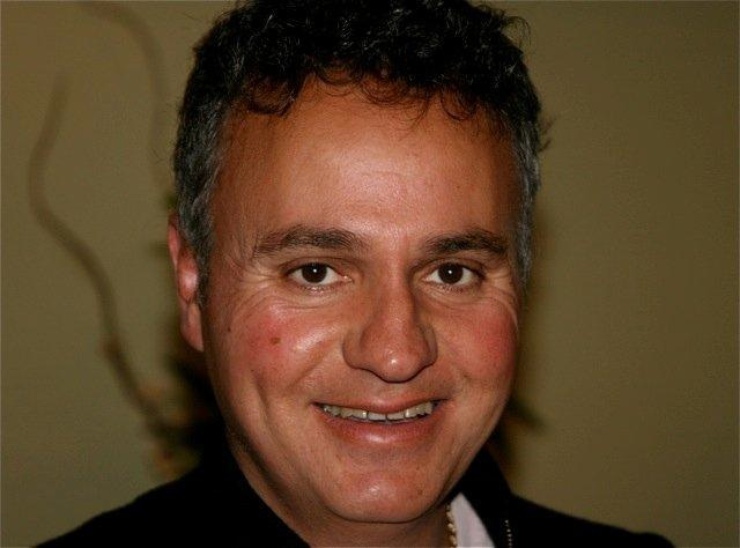
Michel Santi: 'Dynamism is more important than in Europe'
Published on
Translation by:
Daphne WoodThe Franco-Swiss economist, 49, is angry. In his book 'Splendour and Miseries of Liberalism', the former trader and consultant to the central banks is kicking up a tremendous stink against austerity, which is leaving its mark on Europe, neoliberal ideology and market madness, and the inability of the EU to find solutions to the crisis
‘As things stand, the EU can only follow those countries which re-establish growth. It will never succeed in being a driving force,’ exclaims Michel Santi as we sit in a Parisian brasserie. A few hours before uttering his verdict, the European central bank (ECB), which manages the euro, had decided to leave its rates unchanged. The economist considers this to be a mistake, exclaiming in outrage: ‘The rates should have been lowered in order to stimulate the economy.’
Making good use of public deficits
The Frankfurt-based institution has not found favour in Santi’s eyes on any point since the onslaught of the crisis in around 2008. For Michel Santi the ECB, characterised as ‘statutorily autistic’, incarnates the core issue affecting the European economy. ‘The European union’s 27 member states are requested to bend in submission to the wishes of a Germany which, don’t forget, advocates fighting inflation to the detriment of endeavours towards recovery. Keeping rates high effectively makes it possible to curb spending as it drives up the cost of money.’ The former trader believes that this is the exact opposite of what should be done to improve the situation.

Michel Santi, an ardent follower of the English economist John Maynard Keynes, advocates that government spending be put to work for the benefit of the economy. And too bad for the deficits! ‘State intervention’ could be achieved through acquisitions of interest in companies in order to help them, by investing in future projects,’ he explains. Before flying off into a tirade on this subject, the subject of Concorde diverts his attention. ‘What with the withdrawal from the service of Concorde, with which it was possible to fly from Paris to New York in three hours, we have taken a step backwards; it now takes seven hours to cross the Atlantic.’
What is needed in terms of policies?
Michel Santi knows that his proposals will shock those who champion austerity and serious budgeting. Indeed, the golden rule of budgetary control is linked to another dogma where an increase in deficits risks causing inflation, which is thus the sworn enemy of liberals. ‘Inflation will only return when business activity picks up and the country has full employment,’ he points out. ‘For the time being, we are far from that situation since unemployment is on the increase. Michel feels that the focus for public policy should be entirely directed towards the fight against unemployment.
‘To restructure Europe would need real European leadership. For the time being, I do not see anybody who is capable of doing it'
As far as the former trader is concerned, the situation is certainly not rosy but it is not totally desperate either. The United States is in the process of taking things in hand. ‘Private companies are taking up the baton from the state when it comes to economic revival. Dynamism is more important there than in France or indeed in Europe,’ says Santi confidently. Moreover, if the EU does not want control of the situation to slip through its fingers, it would do better to get on track quickly. Whether it is increased federalism, increased solidarity or increased control over the central bank’s policies – there are many approaches to take, but all require a bit of political willingness. ‘To restructure Europe would need real European leadership. For the time being, I do not see anybody who is capable of doing it. All the leaders are fascinated by the financial system and fear more than anything that it will collapse,’ he says. That is why French prime minister Francois Hollande and his German and British counterparts Angela Merkel and David Cameron, as well as others like European council president Hermann Van Rompuy. are extensively ‘bad-mouthed’.
German model not to be envied
However, could it be that Europeans are flexing their muscles for nothing with their projects to separate banking activities? ‘If banking regulation could really be achieved, that would already be the first step towards resolving the crisis, since that would indicate willingness on the side of the politicians to take things in hand,’ explains Michel Santi. A union minimum, as it were.
On the well-known German model, which the French dream of, the former trader flies in the face of the European leaders’ dreams of rigour. ‘With their model based on exports and competitive devaluations, the Germans have created mini-jobs paying 400 euros per month (subsequent to the adoption of a parliamentary amendment these 400 euros per month mini-jobs have seen a slight increase of 50 euros from 1 January 2013 - ed). This model cannot be replicated in other countries and is certainly not one to be envied for the workers,’ explains Santi.At a time when many voices are speaking up against austerity, which appears to be the sole raison d’être of European policy, Michel Santi’s scathing attack perfectly describes the issues linked to resolving the crisis and the original defects of the European structure. The general tone is rather sombre even though obvious approaches exist for putting things right. It remains to be seen if European leaders take up these proposals or if they are doomed to remain pipe-dreams.
Read the 'Dismayed Economists’ manifesto (in French)
Images: main (cc) nathancongleton/ flickr; in-text © courtesy of Michel Santi
Translated from Michel Santi : entretien avec un économiste atterré



